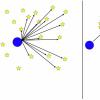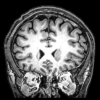Droplet, you wrote: “Here's the issue I've been having: a few years ago, I developed chronic insomnia. Was never a good sleeper but a stressful period made it a real problem.”
And then, later, in a response to a post by “prophets” you state: “I had a stressful time with higher education and it just seemed to trigger everything and ruin my sleeping forever more.”
From this I take it that from the time of your early recollection you were “never a good sleeper”. Your sleep problem (described as not good) was exacerbated during a stressful time associated with higher education. It’s not clear to me if your exacerbated sleep problem associated with your higher-education experience subsequently, after some period of time, degenerated into “chronic insomnia” which manifested itself a few years ago, or if the “chronic insomnia” is the same thing as the higher-education-associated “real problem” you mention.
You mention history of a stroke as a child. Did your awareness of being “never a good sleeper” predate or postdate your stroke? Was the area of the stroke adequately identified? Might there be a logical nexus between the area of your brain affected by your stroke and the brain areas associated with the manifested problems you currently describe? Have you had any medical procedures, prior to the worsening of your sleep/memory/fatigue problems, that might have resulted in cerebral microemboli? Do you currently work in an environment that might subject you to pathogens or chemicals, etc., to a greater extent than typically might be present for an office worker, say, for example? Is there a familial history of symptoms such as you describe? (Note that all of my questions here and elsewhere should be considered to be rhetorical because I don’t want to be branded as a quidnunc  ).
).
Is your O2 level within a normal range–this parameter should have been measured during your sleep study. If you don’t already own one, a pulse oximeter to measure your O2 is a relatively cheap device and it’s also good for looking at the wave forms displayed on the device which might serendipitously display some ectopic beats as, or if, they occur. Increasing numbers of Ectopic beats can be an indicator of low electrolytes or may indicate the possibility of afib (atrial fibrillation) on the horizon. The electrolytes sodium (Na+), potassium (K+), calcium (Ca2+), magnesium (Mg2+), chloride (Cl−), hydrogen phosphate (HPO42−), and hydrogen carbonate (HCO3−) are important. Ectopic beats may also occur as a result of magnesium deficiency as well as thyroid problems, etc..
I assume you have investigated the side effects of Pregablin for you anxiety and periodic limb movement as they might pertain to your symptoms. And also Zopiclone.
Concerning Atorvostatin --what dosage and when was it started and is it currently at the starting dosage or has the dosage increased or decreased? What were your pre-statin cholesterol levels, and what are they now? Some of your symptoms might be an indication of demyelination of cells in critical brain structures. The brain contains about 20% of the body’s cholesterol stores, and statins suppress cholesterol production (simplified description).
https://www.ncbi.nlm...les/PMC4383754/
The majority (about 70%–80%) of cholesterol in the adult brain is in myelin sheaths formed by oligodendrocytes to insulate axons, the rest is made up by plasma membranes of astrocytes and neurons to maintain their morphology and synaptic transmission (Dietschy and Turley, 2004).
Was the diagnosis of periodic limb movement as well as restless legs made before, during, or after your treatment with the statin drug? Does your diet, and any supplements that you may be taking, supply you with adequate amounts of magnesium and potassium?
You wrote: “It is mostly my short term memory that has suffered since Trazadone...” A clarification/elucidation needs to be made as to what you mean by “suffered” in relation to what may be a “short-term memory” problem--have you had a professional diagnosis of a short-term memory problem?. What are the manifestations of your memory problems? It’s good to be aware of the logical fallacies of “post hoc, ergo propter hoc” (after this, therefore because of this) and “cum hoc, ergo propter hoc” (with this, therefore because of this). Not to say that particular correlations and temporal coincidence don’t play into things, but one should be aware of trying to ascribe too much emphasis to what may appear to be, at first blush, an obvious explanation. Trazadone may, or may not, have some role in your symptoms. But, certainly it’s in the “possible contributions” column. Sometimes we tend to fixate on “sure things” in lieu of “thinking outside the box”. https://en.wikipedia...outside_the_box
The phrase “short term memory” has a few “street” definitions as well as a fairly precise “scientific” definition and if what you’re experiencing isn’t a diminution of “the capacity for holding, but not manipulating, a small amount of information in mind in an active, readily available state for a short period of time.”, then your primary (“mostly” as you phrase it) memory problem wouldn’t be considered to be a diminished short-term memory in the scientific sense. The duration of short-term memory (when rehearsal or active maintenance is prevented) is believed to be in the order of seconds.
https://en.wikipedia...ort-term_memory
I’m not implying that you don’t have a short term memory problem I just want to confirm that your assertion conforms to the scientific definition, because there are important distinctions among the various types of memory--short-term memory, working memory, and long-term memory (long-term subsumes episodic, semantic, and procedural memory types). The explicit specification of which type(s) of memory degradation you experience can help those of us who are reading your posts to better understand some of what’s going on in order to, perhaps, offer relevant comment.
If you can confirm an actual, according to the definition, “short-term memory” problem as well as identify the balance of your memory problem (parts not included in your description: “mostly”) by stating the type(s) of memory that you consider to have been diminished from a few years ago, then that might give you, as well as the readers of your post, some clues that could suggest possible etiologies that may point toward possible causation.
Have you undergone an objective test of memory function, such as forward and backward digit span for short-term memory assessment? Or, are you mainly relying on a subjective self-assessment to substantiate your assertion of short-term memory loss? You state that you “can’t learn as quickly”. Do you have some objective measure for this claim or might it be some form of “self fulfilling prophecy”?
Working memory is a cognitive system with a limited capacity that is responsible for temporarily holding information available for processing.[1] Working memory is important for reasoning and the guidance of decision making and behavior.[2][3] Working memory is often used synonymously with short-term memory, but some theorists consider the two forms of memory distinct, assuming that working memory allows for the manipulation of stored information, whereas short-term memory only refers to the short-term storage of information.[2][4] Working memory is a theoretical concept central to cognitive psychology, neuropsychology, and neuroscience.
https://en.wikipedia.../Working_memory
Episodic memory is “the memory of autobiographical events (times, places, associated emotions, and other contextual who, what, when, where, why knowledge) that can be explicitly stated or conjured. It is the collection of past personal experiences that occurred at a particular time and place.” https://en.wikipedia...Episodic_memory
Semantic memory is one of the two types of declarative or explicit memory (our memory of facts or events that is explicitly stored and retrieved).[1] Semantic memory refers to general world knowledge that we have accumulated throughout our lives.[2] This general knowledge (facts, ideas, meaning and concepts) is intertwined in experience and dependent on culture.
https://en.wikipedia...Semantic_memory
Procedural memory is a type of implicit memory (unconscious memory) and long-term memory which aids the performance of particular types of tasks without conscious awareness of these previous experiences.
https://en.wikipedia...ocedural_memory
Episodic memory decline with anticholinergic drugs (who knows, may apply to younger people too). https://www.ncbi.nlm...pubmed/28407520
Are you taking any over-the-counter anticholinergic drugs such as benydril also see http://www.nhs.uk/ne...mmon-drugs.aspx
You state that you were “never a good sleeper”. That could mean a number of things--such as having trouble falling asleep or having trouble staying asleep or not sleeping as long as desired, or not being refreshed after sleeping because of intermittent awakenings, among others. The timing of your eating and exercising might be affecting your sleep patterns and thus potentially detrimentally affecting your memory and your state of fatigue. The daily hours you work might be important—day shift, night shift, variable shift, 8 hour, 10 hour, perhaps 12 or more hours such as some nurses and doctors perform, for example.
You exercise regularly, but at what time(s) of day?
We post readers don’t have access to your catamnesis or anamnesis, or to an exhaustive list of all (or as many as can be identified) changes in your lifestyle from a few years ago, including changes in prescription medications as well as over-the-counter supplements and medications, foods, etc. and also including possible changes in your home and work environments. You may have already considered those factors.
Can you obtain a copy of your MRI CD (or DVD) to examine for yourself?
I don’t know how the NHS works in the UK. I can ask, sometimes cajole  , my doctors to prescribe certain tests. If I was in your circumstances I’d ask for (or persuade in such a manner such that my doctor thinks it was his/her idea to prescribe) the following tests (not exhaustive, just examples):
, my doctors to prescribe certain tests. If I was in your circumstances I’d ask for (or persuade in such a manner such that my doctor thinks it was his/her idea to prescribe) the following tests (not exhaustive, just examples):
magnesium—in order of preference--intracellular such as determined by the exatest http://www.exatest.com/physicians.htm , then RBC (red blood cell) magnesium. Finally, blood serum magnesium which isn’t likely to give you a good indication of intracellular levels, which are the important data to know, but may indicate a dietary deficiency. Restless legs and periodic limb movement may be a result of magnesium deficiency and as “prophets” pointed out in post #3 magnesium is also associated with cognition. If you suffer from fasciculations they may be associated with magnesium deficiency. https://www.ncbi.nlm...les/PMC4455825/
cortisol—elevated levels can affect sleep as well as a host of other functions
vitamin D
thyroid function
metabolic panel
CBC
kidney function
Things you might do for yourself, if not already doing so, and if so inclined:
blood pressure
SpO2 with a pulse oximeter
basal temperature
online digit span and n-back (some n-back can be download free of charge for offline use)
Good luck in your quest for answers and solutions!
![]()























































